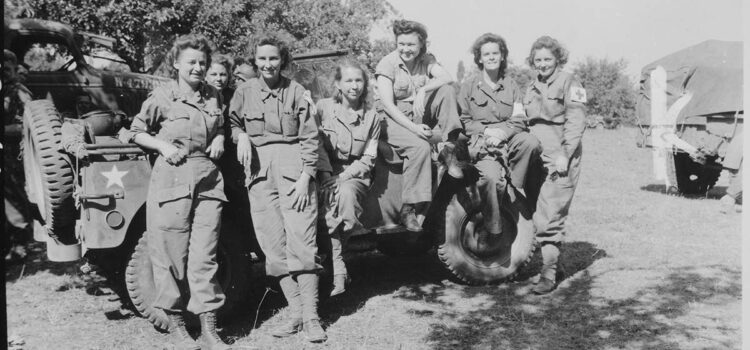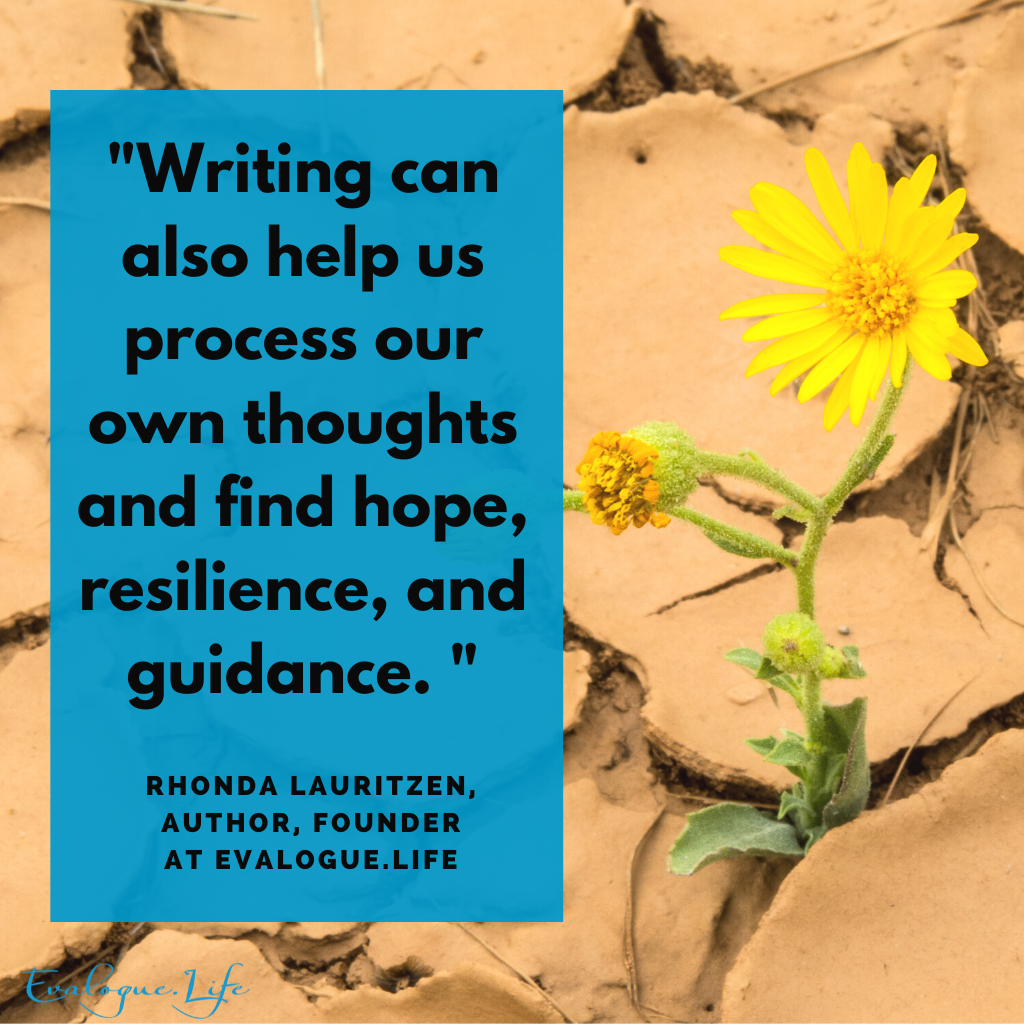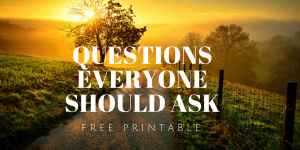
In times of uncertainty and world conflict, our minds may turn to the past for insights. What have you experienced in your own lifetime that might help the next generation navigate these times? What did your parents, grandparents, and other ancestors live through that may guide your loved ones today? If you haven’t done any writing about war in your family history now may be a good time to do so. Writing can also help us process our own thoughts and find hope, resilience, and guidance.
This article is an abbreviated exercise from a live membership class we recently ran on sensitive subjects. It seemed appropriate to focus our writing on war in our family history and why it matters, especially since world events are in our thoughts these days. While the conversations may be hard, we find those stories are often the ones most worth telling. Still, we recommend treading lightly at the complete discretion of the interviewee.
Related article: The secrets of happy parenting
How to write about war or hardship? Start with your own experiences:
Over the years we have compiled many lists of questions for journal writing or interviewing. Here are some key ones on the topic of war in our family history.
- What conflicts, wars, disasters, or times of political upheaval have you experienced in your own lifetime? How did these events shape your circumstances, world view, and your character? What hardships did you or your family experience?
- Have you served in the military? (If so, see questions regarding service, and the Library of Congress Veteran History Project). Click here to read about the Veteran History Project.
What effect did world events have on parents, grandparents, and other ancestors?
- What world wars or other conflicts did your forebears survive?
- What experiences are in your family history about people having to flee a bad situation as refugees for political asylum or similar circumstances?
- What are your family stories of courage or doing the right thing?
- What are stories in your family about the resilience of children?
Related article: Oral history – the easiest, most rewarding way to finish a life story
Common experiences during war – Ideas for details to include:
- Rationing: Ration cards, shortages of items, poor substitutes for items, and recycling.
- People including young people and women taking on unusual work
- Blackout restrictions: Blackout ordinances were a shared experience in Europe.
- Hardship: Lack of food, shelter, warmth, and safety.
- News & Propaganda: News reels at the movies, news on radio, TV, flyers, etc.
- Lack of freedom: What forms of oppression were part of life during that time?
- Air raids and bombings: Memories of air raids, going into shelters, bombings, etc.
- Self-reliance: Victory gardens, reproposing items, and doing without.
- Charity: Giving to others even when the giver had precious little.
- Casualties: People who didn’t survive or who were forever changed because of trauma.
Reflections on war, politics, and sacrifice:
What are your thoughts about war, politics, and sacrifice? What are your thoughts about preparedness? Activism? Kindness/giving? Hope? Survival? In summary, what messages do you want others in your family to understand?
If you are wondering how to write about hardship and war, our best advice is to start with sketching notes and then pick a vignette (short story). Focus on making that story interesting by making a storyboard, or make a video or a picture book. Finally, be sure to share it with your loved ones.
Related article: Sharing stories about hard things can save lives

Rhonda Lauritzen is the founder and an author at Evalogue.Life – Tell Your Story. Rhonda lives to hear and write about people’s lives. She believes that when you tell your story, it changes the ending. Rhonda and her husband Milan restored an 1890 Victorian in Ogden. She especially enjoys unplugging in nature. Check out her books: How to Storyboard, and Every Essential Element. Most recently she was the writing coach of bestselling author, Rob A. Gentile, who wrote Quarks of Light, A Near-Death Experience: What I Saw That Opened My Heart.




Yes, I had hardships but no where near what others put up with. I was interviewed for the Library of Congress as a Vietnam veteran because she overheard my conversations and stories and I was the first soldier had heard that had what could be called an interesting time with some stories to laugh at.
So should I record my hardships and war?
Yes! You absolutely should record your hardships and war. Most Veterans say what they dealt with was not as great as others, but you have something unique to say, and it’s important to add your voice and your thoughts. Your loved ones will want to know, and what you have to say may help humanity better understand.
Thank you for this post. I struggle with this topic continually. How does one write sympathetically yet engagingly about difficulties endured by ancestors? How can it be done without starting a political debate? How can an ancestor’s point of view be clearly presented without using phrases and terms that are triggering?
And yet, the rewards for writing about struggle are manifold, among them sympathy, feeling, appreciation, pride and understanding. A full picture of an ancestor’s life is incomplete without discussing the hardships.
Linda – you are not alone in struggling with this topic. It’s hard because it is hard. It requires grappling, empathy, and editing until we feel a sense of peace that we got the nuances right to the best of our ability. Your point about doing it without starting a political debate is tricky for sure, and I made a note about this to cover in an upcoming class on sensitive subjects. One quick piece of advice is to focus on telling a story while leaving room for the reader to form their own interpretation. You get to have your own thoughts about it, and readers get to decide for themselves. If they spark a political debate, that’s not always bad because it may mean you got them thinking. Sadly, it doesn’t always stay civil and there’s a time to step out of the debate. You are so right about the rewards being worth it and that ancestor stories would be incomplete without the struggle. Thanks for posting this!